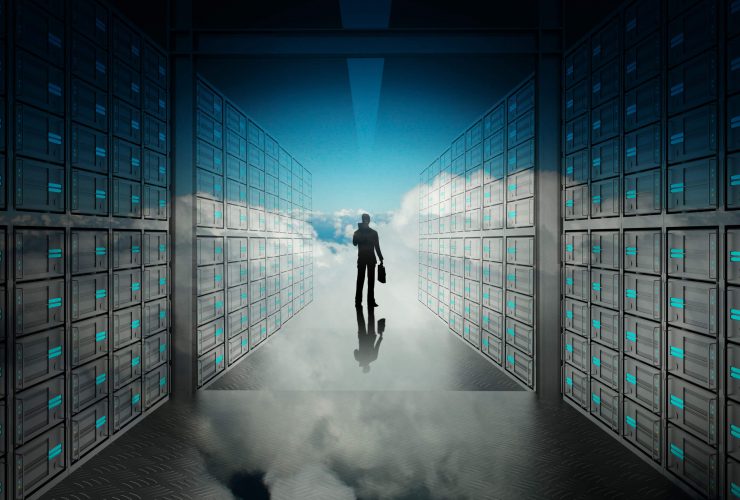Computers revolutionised the way business was conducted, and eventually, even everyday living activities. In just a generation, the computer has gone from a high tech tool intended only for scientific and military use to a device people carry in their pocket and consult multiple times even in just a single hour. The digital age has truly arrived.
However, perhaps one of the biggest changes computers have made to our lives is its synergy with the Internet. With an online-enabled device, more versatility than ever has come to computing, including new ways to work, such as cloud computing. But what is cloud computing? How can businesses benefit, and what is the difference between SAP Business One and Microsoft Azure services?
Lowering The Barriers To Entry
Cloud computing is a “migration” of functionality. With traditional computing solutions, all processing and storage are local. This means that the functions you require are installed on a computer in a physical location. How robust that functionality is depends both on the software installed, and the processing power of that computer and its servers. Storage is a similar situation, with local hard drives and local networks handling access of data when required.
“The cloud” is the nickname for a new method storage that takes advantage of the Internet, allowing data to be stored on the Internet itself, across various machines, all over the planet. “Cloud computing” takes the same principle, bringing not just storage, but actual processing and software out of local systems, and storing that online too.
For businesses, this means that cloud computing and storage remove specific cost considerations, such as needing to pay for both the property and the hardware required to store data, software, and computers capable of running that software. All of this storage and functionality can now be off-loaded and retrieved from cloud computing systems, requiring only a computer with access to the Internet. This can be either a standard desktop computer or something as mobile a smartphone.
What Is SAP Business One?
SAP stands for Systems Applications & Products in Data Processing. It’s a German-based company that specializes in Enterprise Resource Planning software, or ERP. ERP is, simply put, software that allows businesses to operate, whether this is the financial software required for accounting, human resource management software, or even software for handling expense reports for traveling employees.
SAP Business One is a suite of ERP software that gives a business a full range of different software that meets their specific needs in various departments and divisions. However, SAP Business One is a cloud computing system, meaning that this software can be accessed online, and doesn’t necessarily need to be installed on a local computer to work.
What Is Azure?
Azure is a cloud computing solution provided by Microsoft. Microsoft, of course, is best known for the Windows Operating System, as well as its suite of public and business productivity software known collectively as Microsoft Office, and including old standbys such as MS Word and MS Excel.
Azure offers a range of different storage and cloud computing needs, all of which operate under familiar Microsoft and MS Office environments if desired. As one of the elder statesmen of the computing world, this is an old, familiar brand.
Want to hear more? Contact us
What Is The Difference
The primary difference between SAP Business One and Azure is the configuration of products and services. Azure, for example, has a pricing structure based mostly on hardware needs. A client is evaluated for what type of cloud-based computation needs are required, and the appropriate amount of hardware and server storage is allocated for that client. The price then is determined strictly by hardware considerations like memory requirements, hard drive storage, server access, and others.
SAP Business One using a pricing structure that goes beyond hardware requirements and thinks about software and operational support. Additional considerations to keep a business running, such as system updates, maintenance procedures, backups for security purposes, and even threat management, are all part of the assessment a company goes through when considering making the migration to cloud computing.
In other words, SAP Business One and its data processing counterpart, SAP HANA, do not just evaluate hardware needs and leave a business to figure out the rest. The support provided by SAP experts is on a sliding scale of pricing and functionality, that looks at where a business is at, what it needs to grow, and provides both a hardware and support system framework to accommodate that, based on the budget a company has laid out for itself.
For companies that are looking for a scalable solution to migrating operations to cloud computing, SAP Business One may be the answer. Not only will the appropriate hardware be allocated in a cloud computing environment, but businesses will also get the support they need within the budget they have defined to enjoy the versatility and cost-effectiveness of cloud computing without compromising premium levels of support.





